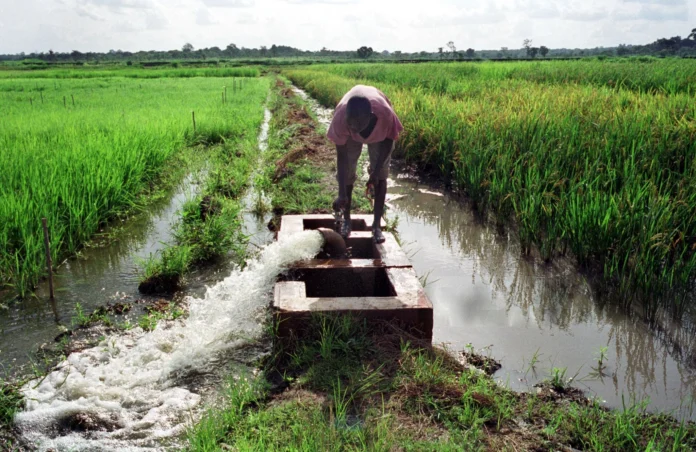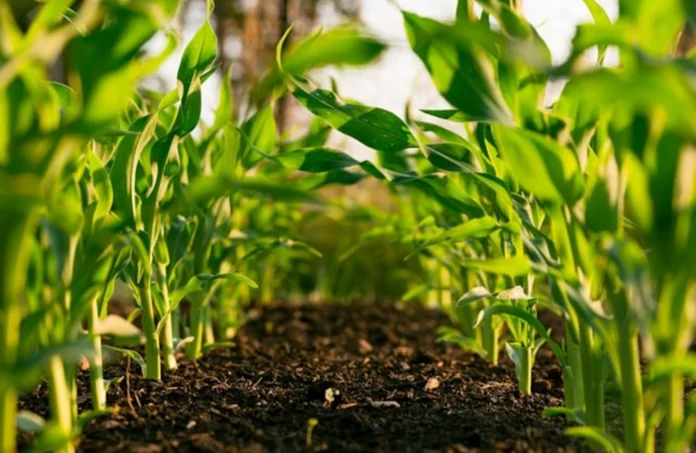Arabfields, Newsroom, Oran — In the competitive world of snack food production, where consumer demand for crispy potato chips spans continents, efficiency is not just an advantage, it is a necessity. Serbia’s Chips Way, a prominent manufacturer of popular brands like Čačanski čips and Gricko, has exemplified this principle through a bold investment in advanced packaging technology. By upgrading its operations with state-of-the-art automated systems, the company has not only tripled its packaging capacity but also reshaped the dynamics of its entire potato value chain, from raw material sourcing to international distribution. This transformation highlights a broader shift in the agricultural and food processing sectors, where post-harvest innovations are proving essential for small and medium-sized enterprises to thrive amid global market pressures.
Chips Way, based in Serbia, has built a strong reputation for its high-quality potato crisps, exporting to 11 European countries and meeting surging consumer appetites for convenient, flavorful snacks. However, as demand grew, the company faced familiar bottlenecks: limited production speeds, high labor demands, and inefficiencies in handling diverse product lines. To address these challenges, Chips Way turned to cutting-edge solutions from specialized equipment providers, installing three fully integrated packaging lines. Each line features an 18-head multihead weigher paired with two rotary bagmakers, forming a seamless, automated system designed specifically for snack foods like potato chips.
These systems represent the pinnacle of modern packaging engineering. The multihead weigher precisely portions out product by distributing it across multiple weighing heads, ensuring accurate fills with minimal variation. Connected directly to the rotary bagmakers, which form, fill, and seal bags in a continuous motion, the setup eliminates manual interventions and streamlines the process from weighing to final output. Capable of handling various bag sizes and product types, the technology incorporates features like automatic air-fill adjustments and real-time seal integrity checks, reducing errors and maintaining product freshness. For potato chips, which are fragile and prone to breakage, this gentle handling is crucial, preserving quality while maximizing throughput.
The results of this upgrade have been nothing short of transformative. Previously, Chips Way’s operations required six shifts to meet production targets, a labor-intensive model that strained resources and limited scalability. Now, the same output is achieved in just two shifts, freeing up personnel for other value-adding tasks and significantly cutting operational costs. Production rates have soared: for a standard 40-gram pack, each bagmaker now operates at 70 to 80 bags per minute, with peak speeds reaching 120 bags per minute for potato crisps. This equates to a nearly 100 percent increase in packing speed per kilogram of product, allowing the company to process more potatoes without expanding its physical footprint.
Beyond sheer velocity, the systems deliver precision that directly impacts the bottom line. One key metric is product “giveaway,” the excess filling that occurs to ensure bags meet minimum weight requirements but erodes profits over time. The advanced weighers have reduced this overfill by 2 percent, meaning more efficient use of every ton of processed potatoes. This improvement translates to higher yields and lower waste, critical in an industry where raw material costs can fluctuate due to weather, supply chain disruptions, or market volatility. Additionally, the technology’s flexibility has revolutionized daily operations. Product changeovers, once a 20-minute ordeal requiring specialized technicians, now take only five minutes and can be managed by standard line operators. This agility enables Chips Way to switch seamlessly between flavors, pack sizes, or even product types, supporting a more diverse portfolio and quicker responses to market trends, such as seasonal demands or new consumer preferences for healthier, low-salt options.
These enhancements at Chips Way illustrate the interconnected nature of the potato value chain, where improvements in one segment ripple outward. Potato growers benefit from more consistent demand, as efficient processors like Chips Way can handle larger volumes without spoilage or delays. In Serbia, where agriculture remains a cornerstone of the economy, such advancements foster stronger partnerships between farmers and manufacturers, encouraging investments in high-yield varieties or sustainable farming practices. For instance, with reduced waste in packaging, processors can afford to pay premiums for quality tubers, incentivizing growers to adopt precision agriculture techniques like drone monitoring or soil sensors to optimize harvests.
On a broader scale, Chips Way’s experience aligns with emerging trends in the potato industry, where automation is driving efficiency from field to shelf. Modern potato farming increasingly incorporates robotics for harvesting and sorting, AI for yield prediction, and data analytics for supply chain optimization. In processing plants, automated peelers, cutters, and fryers minimize human error and energy use, while integrated systems like those at Chips Way ensure the final product reaches consumers in peak condition. These innovations are particularly vital for addressing global challenges, such as labor shortages in rural areas and the need to reduce food loss, which affects up to a third of harvested potatoes in some regions due to inefficient handling.
For small and medium-sized enterprises in developing markets, automation in packaging offers a pathway to international competitiveness. In the snack food sector, where margins are tight and competition from global giants is fierce, such technologies level the playing field by enabling faster scaling without proportional increases in costs. Worldwide, the adoption of automated packaging is accelerating, with markets for these systems projected to grow substantially as companies seek to enhance speed, accuracy, and sustainability. In regions like Europe and beyond, where regulatory pressures emphasize food safety and eco-friendly practices, automated lines reduce plastic waste through precise portioning and support recyclable materials by maintaining seal quality.
Moreover, this shift promotes environmental stewardship. By minimizing overfill and optimizing energy use in machinery, companies like Chips Way lower their carbon footprint, aligning with consumer demands for sustainable products. In the potato value chain, where water and energy-intensive processes are common, these efficiencies contribute to broader goals like resource conservation and reduced greenhouse gas emissions. As automation becomes more accessible, even through modular systems that allow gradual implementation, more SMEs can participate in this evolution, fostering resilient agricultural ecosystems.
Ultimately, the story of Chips Way underscores a fundamental truth in modern agriculture: value maximization extends far beyond the farm gate. Strategic investments in downstream processes, particularly packaging, unlock untapped potential, turning routine operations into engines of growth. For potato producers worldwide, this means more stable markets and higher returns. For industry professionals, from agronomists to engineers, it emphasizes the need for a holistic view of the supply chain, where interconnected innovations drive collective success. In a globalized economy marked by rapid change, embracing such technologies is not optional, it is imperative for building businesses that are efficient, adaptable, and poised for long-term prosperity.












